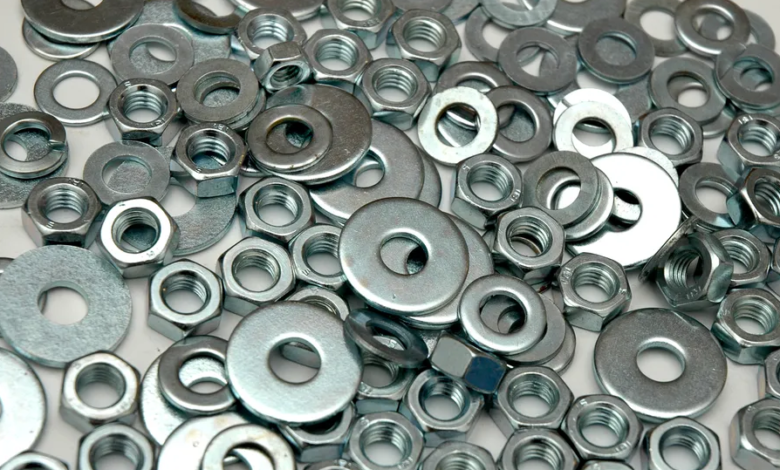Custom Flat Washers

Introduction to Custom Flat Washers
Custom flat washers are essential components used across various industries to provide a smooth and even load distribution when fasteners are tightened. Unlike standard washers, these specialized components are tailored to meet specific dimensions, materials, and performance requirements. Industries such as aerospace, automotive, electronics, and construction frequently rely on custom solutions to ensure performance and durability in their applications.
This article explores the definition, purpose, applications, manufacturing process, and benefits of using custom flat washers. It also discusses how choosing the right supplier impacts the quality and efficiency of these crucial parts.
What Are Custom Flat Washers?
Flat washers are typically round discs with a hole in the center. Their primary function is to distribute the load of a threaded fastener such as a bolt or screw. Custom flat washers, however, are designed with specific requirements in mind. These may include non-standard dimensions, unique materials, or special coatings and finishes.
Customers often require washers that can withstand extreme temperatures, resist corrosion, or support high loads. A custom flat washer addresses these needs better than generic washers available off-the-shelf. As a result, they are a preferred choice in high-performance applications.
Materials Used in Custom Flat Washers
The choice of material is critical when designing custom flat washers. Depending on the application, different materials offer distinct advantages. Commonly used materials include:
- Stainless steel: Known for its strength and corrosion resistance.
- Brass: Offers good conductivity and corrosion resistance.
- Copper: Preferred for electrical conductivity and malleability.
- Aluminum: Lightweight and corrosion-resistant.
- Plastic and nylon: Provide insulation and are non-corrosive.
The selected material must align with the environmental conditions, mechanical requirements, and regulatory standards of the industry in which the washer will be used.
Importance in Different Industries
Aerospace and Defense
In aerospace and defense, every component must custom flat washers meet stringent standards. custom flat washers used in these industries are made from certified materials and undergo rigorous testing. They help ensure that bolts and screws stay secure under vibration, pressure, and extreme conditions.
Automotive Industry
The automotive sector demands custom washers for specific uses such as engine mounting, brake systems, and suspension assemblies. Washers with precise tolerances and heat resistance play a crucial role in maintaining vehicle safety and performance.
Electronics and Electrical Engineering
In electronics, washers must provide electrical insulation and spacing between sensitive components. Plastic or fiber washers are often used to prevent electrical shorts and manage heat dissipation.
Construction and Infrastructure
Custom flat washers used in building and infrastructure projects must handle high loads and resist corrosion. They are often used in bridges, pipelines, and structural frameworks.
See also: self loading mixer: A Smart Tool for Scaling Small Construction Businesses
Advantages of Using Custom Flat Washers
Choosing custom flat washers over standard washers can bring several benefits:
- Precision Fit: Custom dimensions ensure exact alignment and pressure distribution.
- Improved Performance: Tailored designs enhance durability and performance.
- Material Optimization: Allows the use of specific materials best suited for the environment.
- Cost Efficiency: Though initially more expensive, they reduce long-term maintenance and replacement costs.
- Enhanced Safety: Proper load distribution minimizes the risk of fastener failure and structural damage.
Manufacturing Process of Custom Flat Washers
Producing custom flat washers involves several critical steps:
1. Design Consultation
The process begins with understanding the customer’s requirements, including dimensions, thickness, hole size, tolerances, and material specifications.
2. Material Selection and Testing
Based on the design, appropriate raw materials are selected and tested to ensure they meet performance expectations.
3. Precision Cutting
Using techniques like stamping, laser cutting, or waterjet cutting, the washers are formed from flat sheets of material. The method chosen depends on the material and required tolerances.
4. Secondary Operations
Depending on the application, additional operations such as heat treatment, surface finishing, or coating may be applied to enhance performance.
5. Quality Control
Each washer is subjected to rigorous quality checks for dimensional accuracy, material integrity, and compliance with industry standards.
Choosing the Right Manufacturer
Finding the right supplier is vital to ensuring product reliability. A trusted manufacturer should offer:
- Engineering Support: Expert guidance on washer design and material selection.
- Customization Options: Ability to produce in various sizes, materials, and quantities.
- Quality Assurance: Certification to international standards such as ISO, RoHS, or MIL-SPEC.
- Timely Delivery: On-time production and shipping, especially for time-sensitive projects.
- Competitive Pricing: Reasonable costs without compromising on quality.
An experienced metal component manufacturer will also provide prototyping services, helping customers test and refine their washer designs before mass production.
Environmental and Regulatory Considerations
Many industries must comply with environmental regulations. Choosing eco-friendly materials or lead-free coatings ensures that custom flat washers meet green manufacturing standards. Manufacturers should also document their processes to comply with audits and certifications in sectors like aerospace, defense, and electronics.
Applications in Modern Engineering
With the rise of electric vehicles, renewable energy systems, and smart infrastructure, the demand for custom components has grown. custom flat washers support these innovations by offering specialized performance, longer lifespans, and integration into modern designs.
Whether it’s for reducing vibration in wind turbines, providing thermal resistance in battery assemblies, or ensuring electrical insulation in control panels, custom solutions have become indispensable.
Conclusion
custom flat washers play a significant role in enhancing the reliability and efficiency of mechanical assemblies. They offer tailored solutions that meet the unique requirements of different industries. From material selection to precision manufacturing, every aspect of these components is optimized for performance.
Working with an experienced supplier ensures that every washer meets your project’s specifications and industry standards. Whether you’re in aerospace, automotive, electronics, or construction, investing in high-quality custom flat washers leads to better outcomes in safety, performance, and cost-effectiveness.





